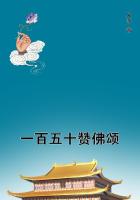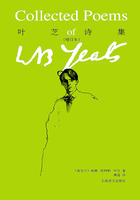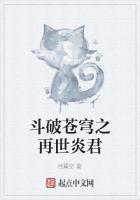MY coming on the scene certainly calmed things down--for the whole fortnight that intervened between my arrival and the girl's departure. I don't mean to say that the endless talking did not go on at night or that Leonora did not send me out with the girl and, in the interval, give Edward a hell of a time. Having discovered what he wanted--that the girl should go five thousand miles away and love him steadfastly as people do in sentimental novels, she was determined to smash that aspiration. And she repeated to Edward in every possible tone that the girl did not love him; that the girl detested him for his brutality, his overbearingness, his drinking habits. She pointed out that Edward in the girl's eyes, was already pledged three or four deep. He was pledged to Leonora herself, to Mrs Basil, and to the memories of Maisie Maidan and to Florence. Edward never said anything.
Did the girl love Edward, or didn't she? I don't know. At that time Idaresay she didn't though she certainly had done so before Leonora had got to work upon his reputation. She certainly had loved him for what I call the public side of his record--for his good soldiering, for his saving lives at sea, for the excellent landlord that he was and the good sportsman. But it is quite possible that all those things came to appear as nothing in her eyes when she discovered that he wasn't a good husband. For, though women, as I see them, have little or no feeling of responsibility towards a county or a country or a career--although they may be entirely lacking in any kind of communal solidarity--they have an immense and automatically working instinct that attaches them to the interest of womanhood. It is, of course, possible for any woman to cut out and to carry off any other woman's husband or lover. But I rather think that a woman will only do this if she has reason to believe that the other woman has given her husband a bad time. I am certain that if she thinks the man has been a brute to his wife she will, with her instinctive feeling for suffering femininity, "put him back", as the saying is. I don't attach any particular importance to these generalizations of mine. They may be right, they may be wrong; I am only an ageing American with very little knowledge of life. You may take my generalizations or leave them. But I am pretty certain that I am right in the case of Nancy Rufford--that she had loved Edward Ashburnham very deeply and tenderly.
It is nothing to the point that she let him have it good and strong as soon as she discovered that he had been unfaithful to Leonora and that his public services had cost more than Leonora thought they ought to have cost. Nancy would be bound to let him have it good and strong then. She would owe that to feminine public opinion;she would be driven to it by the instinct for self-preservation, since she might well imagine that if Edward had been unfaithful to Leonora, to Mrs Basil and to the memories of the other two, he might be unfaithful to herself. And, no doubt, she had her share of the *** instinct that makes women be intolerably cruel to the beloved person. Anyhow, I don't know whether, at this point, Nancy Rufford loved Edward Ashburnham. I don't know whether she even loved him when, on getting, at Aden, the news of his suicide she went mad. Because that may just as well have been for the sake of Leonora as for the sake of Edward. Or it may have been for the sake of both of them. I don't know. I know nothing. Iam very tired. Leonora held passionately the doctrine that the girl didn't love Edward. She wanted desperately to believe that. It was a doctrine as necessary to her existence as a belief in the personal immortality of the soul. She said that it was impossible that Nancy could have loved Edward after she had given the girl her view of Edward's career and character. Edward, on the other hand, believed maunderingly that some essential attractiveness in himself must have made the girl continue to go on loving him--to go on loving him, as it were, in underneath her official aspect of hatred. He thought she only pretended to hate him in order to save her face and he thought that her quite atrocious telegram from Brindisi was only another attempt to do that--to prove that she had feelings creditable to a member of the feminine commonweal. Idon't know. I leave it to you. There is another point that worries me a good deal in the aspects of this sad affair. Leonora says that, in desiring that the girl should go five thousand miles away and yet continue to love him, Edward was a monster of selfishness. He was desiring the ruin of a young life. Edward on the other hand put it to me that, supposing that the girl's love was a necessity to his existence, and, if he did nothing by word or by action to keep Nancy's love alive, he couldn't be called selfish. Leonora replied that showed he had an abominably selfish nature even though his actions might be perfectly correct. I can't make out which of them was right. I leave it to you. it is, at any rate, certain that Edward's actions were perfectly--were monstrously, were cruelly--correct. He sat still and let Leonora take away his character, and let Leonora damn him to deepest hell, without stirring a finger. I daresay he was a fool; I don't see what object there was in letting the girl think worse of him than was necessary. Still there it is. And there it is also that all those three presented to the world the spectacle of being the best of good people. I assure you that during my stay for that fortnight in that fine old house, I never so much as noticed a single thing that could have affected that good opinion. And even when I look back, knowing the circumstances, I can't remember a single thing any of them said that could have betrayed them. I can't remember, right up to the dinner, when Leonora read out that telegram--not the tremor of an eyelash, not the shaking of a hand. It was just a pleasant country house-party.














